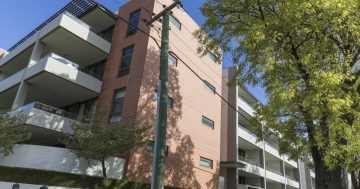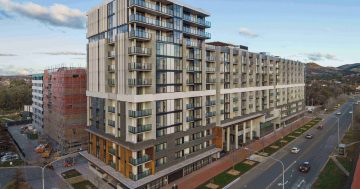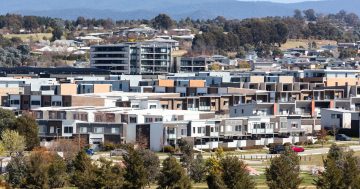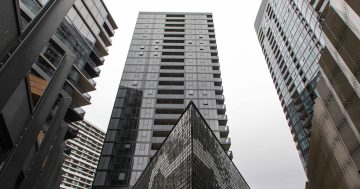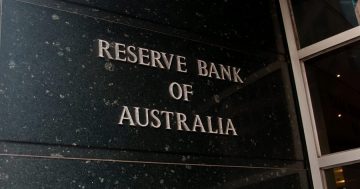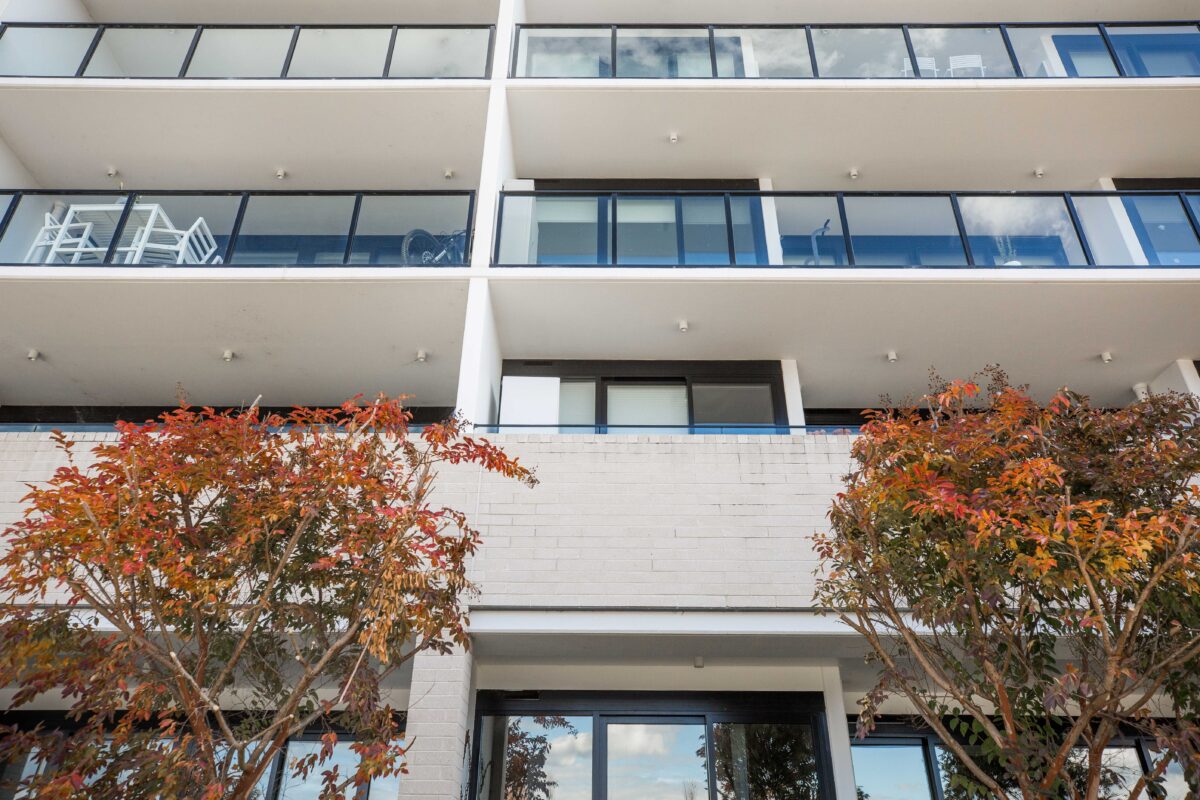
With borrowing capacity shrinking, more first-home buyers are looking at apartments just to get into the market. Photo: Zen Photo.
The proportion of family income needed to meet home loan repayments is heading into mortgage stress territory for ACT homeowners after Tuesday’s interest rate increase, the 12th since May last year.
The repayments figure is up almost 10 per cent over the year to March, according to the Real Estate Institute’s latest affordability report.
The 25 basis points increase in the cash rate to 4.10 per cent will add another $76 a month to a $500,000 mortgage.
For the average Australian mortgage (around $600,000), monthly repayments have risen $1264 since the cash rate was 0.10 per cent in April 2022.
Reserve Bank Governor Philip Lowe has indicated the pain may not be over, flagging more increases in coming months to get inflation under control.
REIACT CEO Maria Edwards said the proportion of family income needed to meet home loan repayments in the ACT was up from 26.5 per cent in March 2022 to 34.6 per cent in March this year, and there have now been two more rate rises since.
Ms Edwards said there had been a big change in people’s household budgets, and the only saving grace for Canberra was its relatively high incomes.
But the latest interest rate rise, which has come as a shock to some, has made many people nervous and hesitant to commit.
“The impact is really going to be felt in the local market,” she said.
Ms Edwards said all areas of the market would be affected, from first-home buyers struggling to get into the market to landlords wondering whether they can afford to stay in the market.
She said buyers’ borrowing capacity had shrunk over the past couple of years and many first-home buyers were compromising on the type of property they wanted, opting for cheaper apartments over a house.
“They might just go for a unit just to get into the market,” Ms Edwards said.
She said volumes were down and there was not that much to choose from, but buyers were also cautious and picky.
“Buyers are definitely looking for bargains, but if people don’t have to sell, they won’t,” Ms Edwards said.
More first-home buyers were also using the ‘bank of mum and dad’ to get into the market, she added.
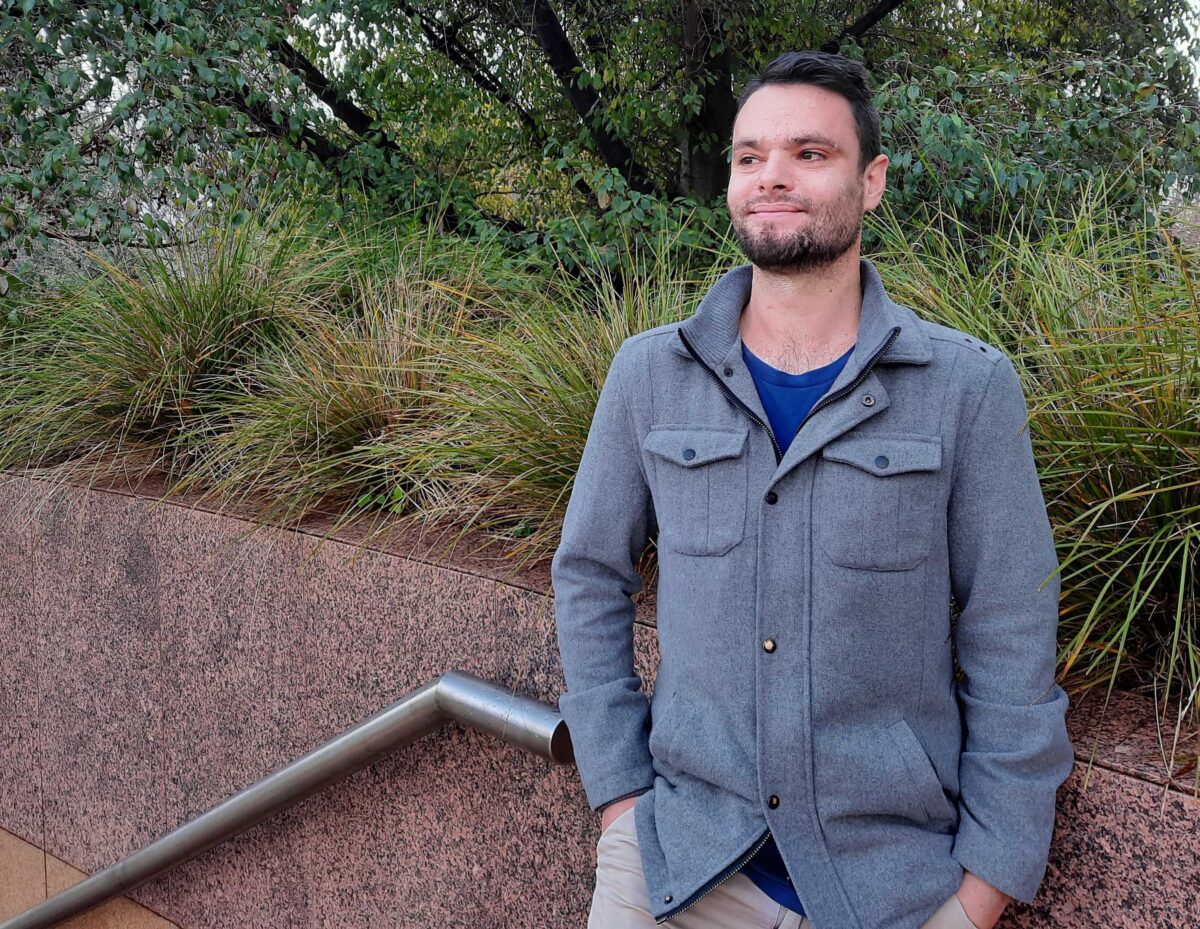
Michael Lanscar was keenly aware of interest rate rises when househunting. Photo: Ian Bushnell.
Homebuyer Michael Lanscar was focused on keeping his mortgage to a minimum in light of rising rates, throwing as much as he could at the deposit.
Mr Lanscar said he had just settled on a two-bedroom, two-bathroom, double garage apartment in Denman Prospect and was looking at $2100 in monthly repayments on a $350,000 mortgage before Tuesday.
The prospect of even more rate rises means he will have to watch his budget.
“It’s a little bit concerning. I’m going to have to tighten the pocket and think a little bit more wisely about going out,” Mr Lanscar said.
“I’m going to be spending a lot more nights at home rather than going out for dinners and all that kind of stuff. I’m going to have to pay a lot more attention than I previously would have had to.”
Mr Lanscar was keenly aware of the interest rate environment when house hunting.
“I actually used a mortgage broker and was in contact multiple times a week,” he said.
“He was actually really, really good and was advising me every time that interest rates were going up and what it would mean.”
Ms Edwards said investors were copping it both ways in Canberra with rising rates and costs and falling rents due to the unexpected drop off in interstate migration, bucking the national trend.
“It’s creating a lot of anxiety among investors who are trying to decide whether to hold on to their properties or sell them, so there could be a long-term impact on the rental market if supply falls in available properties,” she said.
Master Builders ACT CEO Michael Hopkins said the rate rise would only further dampen ACT building approvals which fell 16 per cent over the March quarter and were now down 14.4 per cent over the year to March.
Mr Hopkins said that while there was still strong demand from buyers to sign building contracts and purchase land, indications were not good for the future.
He said the high cost of borrowing meant fewer inquiries at display villages and the industry was worried about how low housing approvals had dropped.
“And this is coming at a time when the ACT needs more housing, much more housing, especially if we’re going to achieve our share of the national housing accord’s one million homes over five years,” Mr Hopkins said.
He said there had not yet been a big increase in businesses going broke in the ACT like there had been interstate, but they were enduring the toughest trading conditions in a long time.
“We have been expecting that number to increase because there has been incredible pressure on building businesses, most of which are small local family businesses, but we’ve been fortunate in the ACT not to see the high number in other states.”












